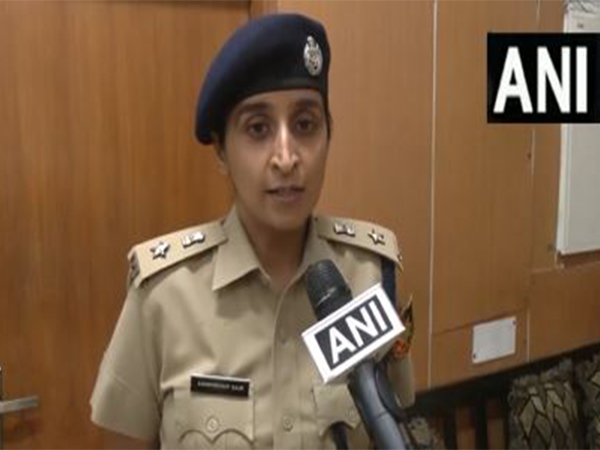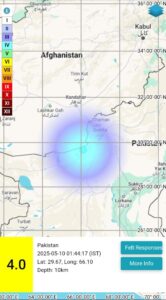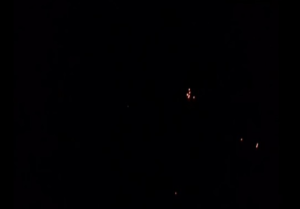Don’t trust social media rumours, urges Punjab police official amid escalating tensions with Pakistan

Chandigarh (Punjab) [India], May 9 (ANI): Amid escalating tensions between India and Pakistan following the launch of Operation Sindoor, Punjab police on Friday urged the public not to trust any rumours circulating on social media.
Speaking to ANI, Senior Superintendent of Police (SSP) Chandigarh Kanwardeep Kaur urged people to only trust information from government social media handles.
“I appeal to the people of Chandigarh not to trust any rumours circulating on social media. For correct information, follow the social media handles of Chandigarh Administration and Police. The situation in Chandigarh is normal. All markets are open. There is no need to fear,” SSP Kaur told ANI.
SSP Kaur added that contingency reserve and quick reaction teams are prepared to respond to any security threat.
“Contingency reserve and quick reaction teams are ready 24/7. All vital installations in Chandigarh have been provided with security forces. We have identified sensitive zones, vulnerable areas, and buildings, and conducted security audits for all of them. They will be securely protected with a 24-hour police deployment,” SSP Kaur told ANI.
Her remarks came after Pakistan’s provocative shelling of civilian areas in Punjab and other parts of India on Thursday night.
Tensions between India and Pakistan have escalted after the Indian Armed Forces launched Operation Sindoor in the early hours of Wednesday, targeting terrorist infrastructures in Pakistan and Pakistan-occupied Jammu and Kashmir (PoK). This operation was a retaliatory response to the April 22 terror attack in Pahalgam, Jammu and Kashmir, which resulted in the deaths of 26 civilians, including one Nepali national.
Hours after India conducted a series of strikes on terrorist sites in Pakistan and Pakistan-occupied Kashmir (PoK), Foreign Secretary Vikram Misri, Colonel Sofiya Qureshi, and Wing Commander Vyomika Singh held a media briefing in the national capital to share details of the operation.
Wing Commander Vyomika Singh, who briefed the media alongside Foreign Secretary Vikram Misri and Colonel Sofiya Qureshi, stated that ‘Operation Sindoor’ was launched to deliver justice to the victims of the Pahalgam terror attack and their families.
Singh reported that a total of nine terror sites were targeted and successfully destroyed. She emphasized that the locations were chosen to ensure there was no damage to civilians or their infrastructure.
“Operation Sindoor was launched by the Indian Armed Forces to deliver justice to the victims of the Pahalgam terror attack and their families. Nine terrorist camps were targeted and successfully destroyed… The locations were so selected to avoid damage to civilian infrastructures and loss of any civilian lives,” Wing Commander Vyomika Singh said.
Col Sofiya Qureshi presented videos of the destruction of terror camps, including those from Muridke, where David Headley and Ajmal Kasab, perpetrators of the 2008 Mumbai attacks, received training. Other than Muridke, the Sarjal camp in Sialkot, Markaz Ahle Hadith, Barnala, and Markaz Abbas, Kotli, and the Mehmoona Joya camp in Sialkot were targeted in the strikes conducted by the Indian Army, Col Qureshi informed.
Foreign Secretary Vikram Misri said that the attack on Pahalgam was driven by an objective of undermining the return of normalcy in Jammu and Kashmir.
“The attack in Pahalgam was marked with extreme barbarity, with the victims mostly killed with head shots at close range and in front of their family…the family members were deliberately traumatized through the manner of killing, accompanied by the exhortation that they should take back the message. The attack was clearly driven by the objective of undermining normalcy returning to Kashmir,” he said.
India has carried out its deepest strikes inside Pakistan’s undisputed territory since 1971, successfully targeting terror camps in Pakistan and Pakistan-occupied Jammu and Kashmir. This marks New Delhi’s most significant military action within Pakistani territory in over five decades. (ANI)
This story is not been edited by Take One Television & Digital Network Staff and is auto-generated from syndicated feed






